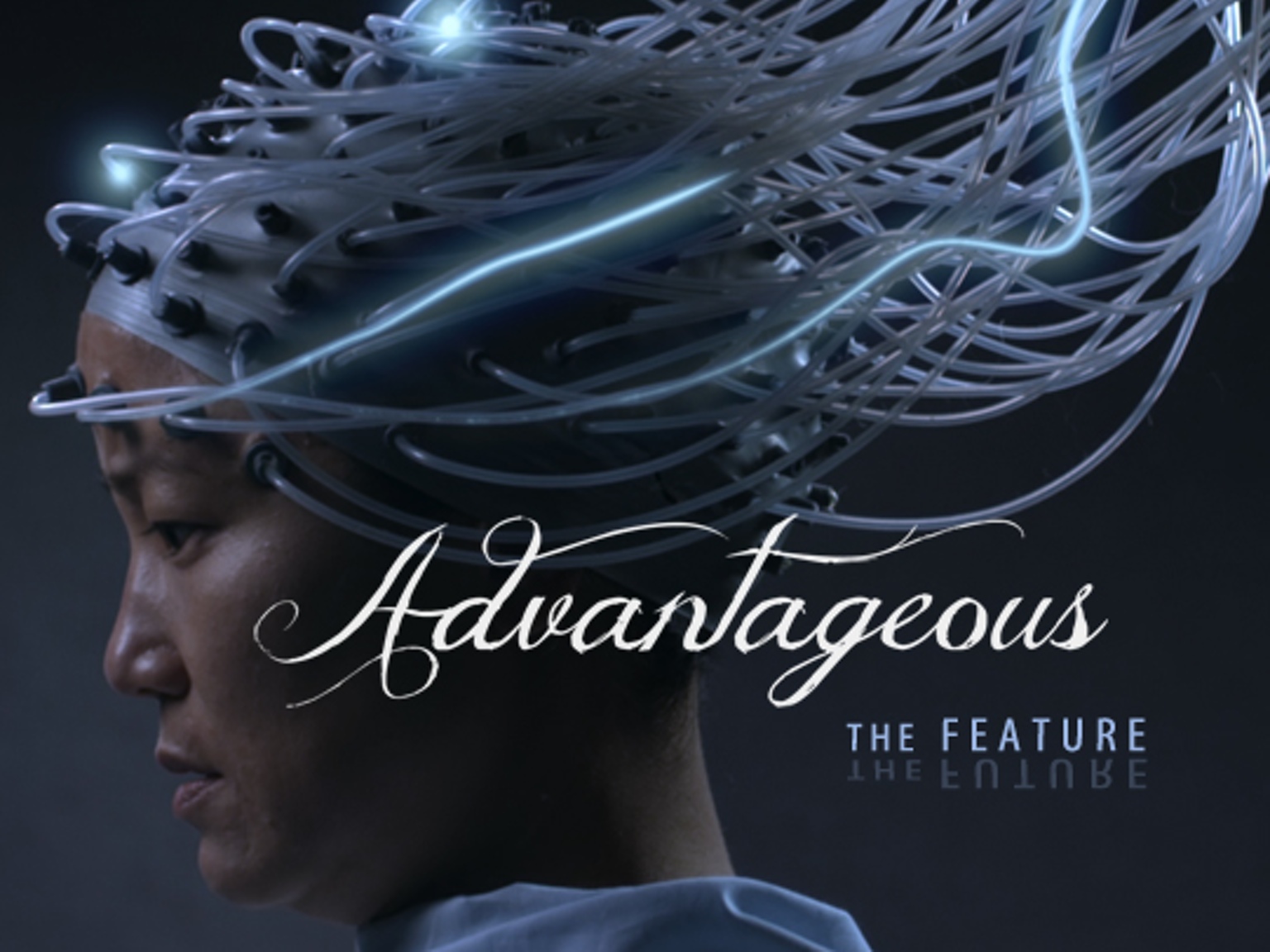“We’re looking for someone that’s a little more… universal.”
This line — uttered by James Urbaniak’s character Fisher in Jennifer Phang and Jacqueline Kim’s new science fiction film Advantageous — hit me like a punch to the sternum.
Body transformation and body switching is a staple of science fiction, featured in movies like Face-Off, Xchange, and most recently Self/less. In most of these films, body switching is treated as a convenient plot device for wacky hijinx to ensue, typically devoid of serious consideration of race and gender politics.
In Advantageous, however, screenwriters Jennifer Phang and Jacqueline Kim (who also stars in the movie) offer a refreshing and long overdue take on the body switching concept. Informed, perhaps, by Phang and Kim’s own identities as women of colour, Advantageous focuses specifically on the ramifications of body switching technology on race, gender, and interpersonal identity. The resulting film is a deeply emotional exploration of one woman’s love for her daughter and, to my knowledge, one of the first Asian American feminist science fiction films in history.
The following post contains spoilers.

Like all great science fiction, Advantageous builds a detailed world for its characters to inhabit — one that is simultaneously foreign yet still recognizable when compared to our own. Like much of my favourite science fiction, Advantageous offers hints at the world events that have influenced global politics, while rejecting any need to provide pedantically detailed explanations of these events to the audience. Instead, these world events simply “are” for the characters, and so simply “are” for the viewer.
In contrast to the post-racial world that typifies most mainstream science fiction, the world of Advantageous is not only one where race and gender exists, but one where racism, sexism and classism profoundly impacts daily life. Advantageous is set in a near-future metropolis. Despite the seemingly utopic urban cityscape, social and political ills remain and are distinctly racialized and genderized. Terrorism plagues the city’s inhabitants, resulting in an omnipresent police drone patrol of the skies. Poverty has driven a significant number of children into prostitution. Biological devastation has rendered most women infertile, which has caused a backward regression for feminism. Women no longer “lean in”; instead, the women of Advantageous increasingly view themselves as belonging at home where they must focus on reproduction and child-rearing.
It is in this near-future world where we meet Gwen Koh, the director and spokesperson for the Center for Advanced Health and Aging. Visually evoking Connie Chung (and the politics surrounding her career), Gwen is the public face for the Center, and openly aware that she was hired because of her appearance: she is expected to be pretty, poised and ambiguously youthful — all tropes that invoke the stereotypes of Asian American women. Gwen’s position ostensibly makes marketing sense: her job is to sell the Center’s alternative to plastic surgery — body switching into a designer body — to women living in a futuristic world where youth and beauty are increasingly essential, even in the boardroom. This point is made no more obvious than with the film’s opening few minutes, when Gwen learns that she has been fired because the Center wants a younger, “more universal” spokesperson.
It was at this moment that I was floored. I was not expecting this. With this one scene, Advantageous had so intimately essentialized the specific racial and gender notes of the Asian American female experience, I had to pinch myself to make sure I wasn’t dreaming.
Complicating matters is Gwen’s only child, Jules, played by the quiet talent of Samantha Kim in her debut performance. Jules is presented as older than her years, struggling to understand her place in a world that demands achievement while it devalues women beyond reproductive capacity. Gwen has few answers: this is the same world that stigmatizes her as a single mother and expects household income to be the sole purview of the male parent. Gwen is devastated by the loss of her job, and she must replace her lost income so that Jules can enroll in a preparatory school — because of the increasing emphasis on standardized testing, prep school is necessary for Jules to gain access to any additional higher education.
And so, Gwen faces the central choice of the film: should she volunteer to undergo the Center’s body-switching procedure to become their newer, younger, more racially ambiguous spokesperson? If she makes this choice, what does she stand to gain, and what will she sacrifice?
Advantageous neither shies away from nor romanticizes the possibility of Gwen’s transracialization. Instead, the change in Gwen’s physical appearance is the central tension of the film. Will Gwen still be Gwen if Gwen no longer looks like Gwen? Will she still be Jules’ mother? Will Jules still see Gwen as her mother? Will people still recognize them as related? The film offers answers to these questions that result in one of the most nuanced discussions of transracialization I’ve ever been privileged to watch on film.
Advantageous stars a talented cast of Asian American actors, all wildly skillful. Ken Jeong, who also produced Advantageous, turns in a complex performance as Han, the husband of Gwen’s cousin Lily (played by Jennifer Ikeda); this is, without a doubt, my favourite role of Jeong’s filmography. Advantageous‘ star, Jacqueline Kim, is riveting as she effortlessly moves between rage, sorrow and maternal love.
Advantageous stayed with me long after the end credits rolled. If one needed any other reason to believe that Asian American film can be intense, creative, and pioneering, this film is it. If one needed any other reason to believe that the genre of science fiction needs and deserves greater inclusion of filmmakers of colour, this film is it. The film is an understated, emotional, and complex drama that stands as the antithesis of the high-octane, action-packed, and White-dominated mainstream science fiction blockbuster. And, for exactly that reason, it captures the essential ingredients of powerful, political science fiction.
In addition to its mostly Asian American cast, Advantageous also credits a crew that is predominantly composed of filmmakers of colour. The film debuted in June at the Sundance Film Festival, where it won a Special Jury Prize and was nominated for the Grand Jury Prize. Advantageous is currently available for rent On Demand and other streaming sources.

